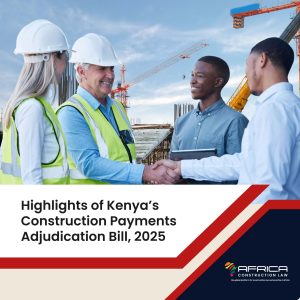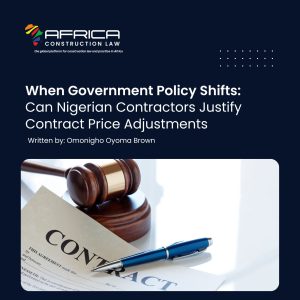Serial adjudication, contractual interpretation, and res judicata – a South African perspective
By Patrick Ellis SC and Ricky Ellis
Introduction
Adjudication of construction disputes, it has been said, is a form of alternative dispute resolution, aimed at fast and uncomplicated interim solutions of disputes as a cashflow measure to avoid delays in payment so as not to delay the construction progress.[1] Nugent JA[2] described it as a “quick and dirty process”. As time passed, contractors were emboldened by the results, and requested to embark on, what has become known as “serial adjudication” a term which perhaps has a more familiar ring to those lawyers better acquainted with the criminal justice system.
In England, where the concept of adjudication was born, serial adjudication has become somewhat of a menace, leading Coulson J in Benfield Construction Ltd v Trudson (Hatton) Ltd [2008] EWHC 2333 (TC) to remark:[3]
“Allowing one party to raise one legal issue at a time in serial adjudications extending over many months or even years until that party achieves a result that it likes, would place an intolerable burden on the other party for which adjudication was designed.”
Contractual nature of adjudication in South Africa
South Africa, where adjudication was more recently received with open arms is not immune to this phenomenon which, if left unchecked, may become an even bigger menace, draining the very fragile commodity which the legal system in this country has become.
To understand the scope and ambit of adjudication in this country, it will be well to remember that, unlike the English concept, it is entirely contractual[4]: South Africa does not have a statute such as the Housing Grants, Construction and Regeneration Act, 1996 or its counterparts in Australia, New Zealand, Hong Kong or Singapore.[5]
Where a court is asked to enforce an adjudication award, it is in fact ordering specific performance of a contractual provision, in the exercise of its discretion.
Parties to a contract are, as a general proposition, entitled to performance in terms thereof in forma specifica. The court is, however, endorsed with a discretion to refuse an order of specific performance. That power is used sparingly. Instances where the courts have refused orders of specific performance, are where doing so would produce a result which is unjust or contrary to the legal or public policy.[6]
We contend that our courts will not enforce multiple adjudication decisions which will produce an unjust result or will be contrary to legal and public policy.
Since Roman times South Africa’s law has cherished the principle that there should come a time where litigation should end. This is expressed in the maxim “interest reipublicae ut sit finis litium”. It is trite law that the process of interpretation of a contract is objective, not subjective. A sensible meaning is to be preferred to one that leads to insensible and unbusinesslike results or which undermines the apparent purpose of the contractual position.[7]
Against this background, we examine the principle of finality in adjudications as it has emerged in recent English judgments and which may persuade South African judges to similarly decide.
Principle of finality in adjudications in England
In Hitachi Zosen Inova AG v John Sisk & Son Ltd[8] the court held that, as a general statement of principle an adjudicator does not have jurisdiction to decide a dispute that is the same as a dispute that has already been decided in a prior adjudication.[9]
In Quietfield v Vascroft Construction Ltd[10] it was held that although more than one adjudication is permissible,[11] a second adjudicator cannot be asked to decide again what the first adjudicator has already decided.[12] In this judgment, an analogy was drawn with the rules developed in common law, to prevent successive litigation over the same manner,[13] much the same way the principles in our law of res iudicata, lis alibi pendens and issue estoppel. We contend that those principles should stand at the forefront of any question relating to serial adjudications.
On the question on how to approach the question of whether a later adjudication relates to the same dispute as an earlier one, Quietfield confirmed that the question is one of fact and degree.[14] In Harding v Paice[15] Jackson LJ held that in the deciding of that issue, one should rather place emphasis on what was decided by the earlier adjudicator than to what was referred to him for decision. Stuart-Smith J in Hitachi Zosen agreed with this view.[16]
In Prater Ltd v John Sisk & Son (Hldgs) Ltd[17] a novel challenge to the enforcement of an adjudication decision was raised. In that case the parties engaged in a series of adjudications during 2020 and 2021. Inter alia, the fourth adjudication was based on the decision in the second adjudication. The contractor was successful in both, but its attempt to enforce the fourth adjudication award was challenged by the employer, on the ground of jurisdiction of the adjudicator in the second adjudication. The challenge was ultimately unsuccessful, but this judgment serves as a stark reminder of perhaps the greatest peril of serial adjudications.[18]
Serial adjudications will more often than not, like in Prater, be referrals of disputes which disputes emanate from previous adjudication proceedings. Adjudication awards are binding until later set aside by arbitration, and the party who is dissatisfied is usually under a time restriction to refer the adjudication to arbitration commencing with a notice of dissatisfaction. The question will undoubtedly arise as to what is the legal effect if for instance the second of a series adjudication awards (all of which piggy back on each other) is set aside on arbitration, but the remainder of the awards still remain valid until set aside. How are the parties then to regulate their affairs based on the later awards?
The res judicata principle to be extended to adjudication proceedings in South Africa?
The principle that an adjudicator does not have the jurisdiction to decide a dispute that is the same or substantially the same as a dispute that has already been decided in a prior adjudication, sits comfortable with our own law of interpretation of contracts and specific performance, and ought to find favour in this country, not only in enforcement proceedings but also in adjudication proceedings, which are, after all, just one step in enforcing the terms of the contract.
By analogy, this principle is the expression of the general principle of finality in legal proceedings, akin to the maxim of res judicata, whilst by its very nature, an adjudication decision is not a judgment of a court of law, and lacks the finality of a judgment, the element of “the same thing on the same ground”[19] expresses the same sentiment as that expressed by Stuart-Smith, J in Hitachi Zosen.
We consequently contend that, whilst parties may enjoy the contractual freedom of serial adjudication, that freedom is not limitless, and should be kept within well defined boundaries by applying the principle laid down in Hitachi Zosen, which fits in comfortably with our own law of contractual interpretation and res iudicata. Lest parties to the adjudication should suffer a slow and painful torture not inappropriately likened to the ancient Chinese practice of “ling chi”, or death by a thousand cuts.[20]
[1] Radon Projects (Pty) Ltd v NV Properties (Pty) Ltd & Another 2013 (6) SA 345 (SCA) at para 3-5.
[3] Para 55.
[5] Maritz “Adjudication on disputes in the construction industry”.
[7] Natal Joint Municipal Pension Fund v Endumeni Local Municipality 2012 (4) SA 593 (SCA).
[9] Hitachi Zosen Inova AG v John Sisk & Son Ltd at para 24.
[11] The requirement of one dispute arises in England from statute, whereas there is no similar limitation in South Africa, where adjudication is a purely contractual remedy.
[12] Quietfield v Vascroft Construction Ltd at paras 30 to 31.
[13] Quietfield v Vascroft Construction Ltd at para 46.
[14] Quietfield v Vascroft Construction Ltd at para 47.
[16] Hitachi Zosen Inova AG v John Sisk & Son Ltd at para 31.
[18] The other great peril is the possibility of an abuse of process, which is a topic in and on itself.https://www.adjudication.org/resources/articles/serial-problem-serial-adjudications
[19] National Sorghum Breweries (Pty) Ltd t/a Vivo African Breweries v International Liquor Distributors (Pty) Ltd 2001 (2) SA 232 (SCA).


















